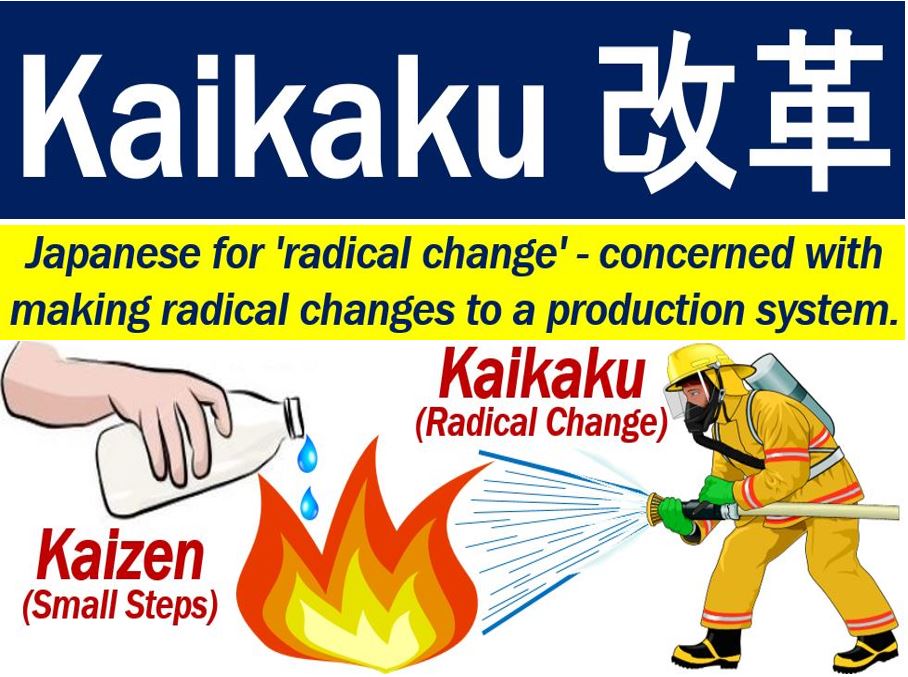Kaikaku, which means ‘radical change, breakthrough, or reform,’ is a Japanese Lean Production term that aims to eliminate waste. Waste in Japanese is ‘muda.’ The radical change also aims to create greater value. Kaikaku means introducing a significant change in a process so that it improves considerably.
The term contrasts with Kaizen, which involves taking many small steps to achieve gradual improvement.
Doing Kaizen means changing one thing at a time and subsequently observing the effects. In other words, to slowly learn from experience.
Doing Kaikaku, however, means introducing major and drastic changes. We, therefore, consider Kaizen as the safer of the two options.

Kaikaku vs. Kaizen
The two terms are concepts that relate to each other in Japanese production philosophy. Both concepts have origins in the Toyota Production System.
In the 20th century, the Toyota Production System introduced several systems, and also Japanese terms that other countries adopted. For example, Heijunka is a technique for achieving a perfect supply and demand balance. Toyota also introduced the Just in Time concept.
While Kaikaku refers to a radical change over a short period, Kaizen involves continuous minor changes. Kaizen also means taking small steps over a long period.
When there are team-related problems in a production system, Kaizen is a popular option.
When you do Kaizen, you involve all the employees in the small steps. You aim for small improvements. For example, a 15% improvement after implementing Kaizen is a great result.
We call a cross between the two approaches Kaizen Events or Kaizen Blitz. A Kaizen Blitz, for example, implies a radical improvement but in a limited area. A production cell may be the focus for improvement in a Kaizen Blitz.
When you do Kaikaku, you hit the entire business. It is very much a management focus because the result will impact the whole company in a big way.
If an ongoing Kaizen work is starting to stagnate, senior management may opt for the more radical approach.
During the second half of the 20th century, Kansei Engineering also spread from Japan to other countries. Kansei engineering is an engineering method that is based on human feelings.
Video – Kaikaku
How do you know if your company’s system is in need of a radical change? The key lies in knowing how to assess your company’s current state accurately.
